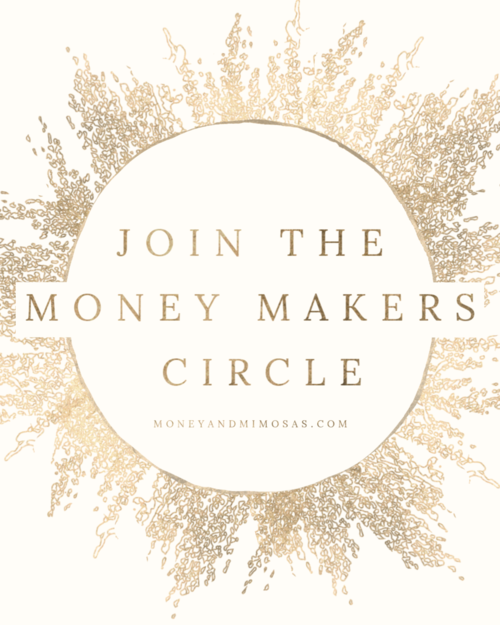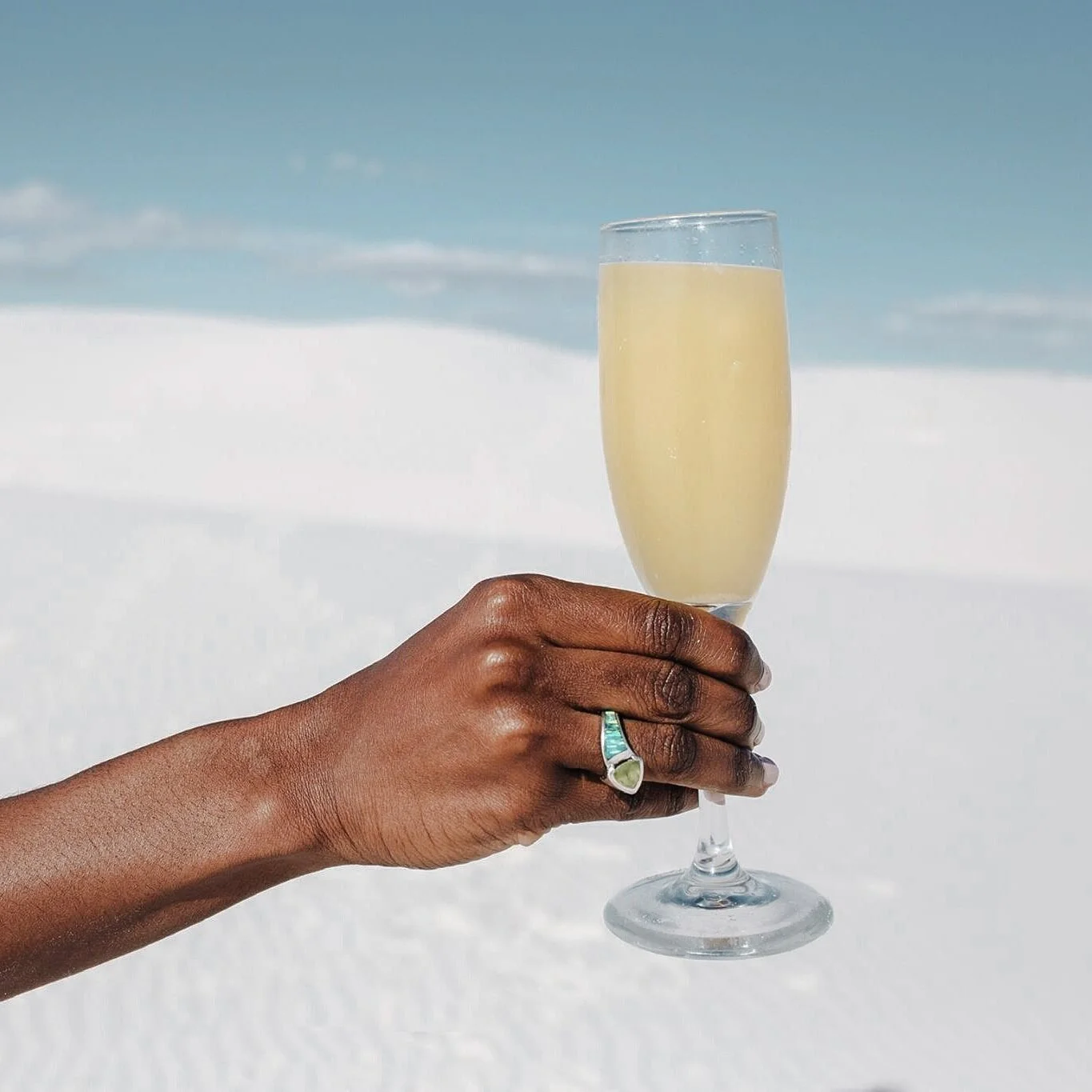Money Date With Ethique
/Every Friday I recommend having a money date…with a mimosa. Hence the name of my blog, Money & Mimosas.
Your money date is your special time to review your finances, celebrate your wins, and reflect on how you used your money to make a difference. Feel free to do it alone or with your money buddy. If you’d like a step-by-step guide for your money date, click here to download your free checklist.
In these money date articles, I typically feature small to medium-sized businesses who practice sustainability and ethical sourcing. This week we’re featuring Ethique, a clean beauty brand based in New Zealand that has a mission to rid the world of plastic waste. We caught up with the team to learn more about their founder, Brianne, and her vision for the company.
What inspired you to establish zero waste beauty?
Ethique came about as a combination of my passion for the environment, knowledge of cosmetic chemistry (and the waste the industry creates) and the desire to create a business that had far more at its core than just making profit, I wanted to make a positive change
Years ago while I was studying at University I taught myself cosmetic chemistry from scratch with loads of research into what each ingredient does and how to build a product from the ground up. Up to 75% of shampoo and even 90% of conditioner can be water, which just seemed crazy to me. Obviously water is an important part of the product, but I was interested in what happened if you simply combined the ingredients without water. Shampoo bars aren’t particularly unusual, but the majority of them are soap, which has a very high pH which leaves a residue and roughs up the hair cuticle leaving some people with a result less than desired. I wanted to create something much closer to a typical salon quality shampoo- but solid of course!
But my first lightbulb moment was learning 80 billion plastic bottles end up in landfills each year – Just from shampoo and conditioner alone. I was studying biochemistry at University and began digging in. I taught myself cosmetic chemistry, researching what each ingredient does and how to build a product. I realized up to 75% of shampoo and even 90% of conditioner can be water, which is crazy! Second lightbulb moment. So I explored removing the water and simply combining the concentrated ingredients. It grew from there into a range of over 40 products- almost everything you can find in your bathroom!
Why is it important for you to have a fair trade brand that also has biodegradable packaging?
We are not a certified fair trade company, but we use a lot of fair trade ingredients. We tend to do this by reaching out directly to cooperatives rather than using intermediaries. This way we know for a fact that the producers of our ingredients are paid fairly (as we pay them directly), we can visit them, learn from them and develop relationships with them. Fair trade shouldn’t be an unusual value for a company to have; it’s disgraceful that so many of our products come from underpaid, badly treated communities who have no choice but to sell to these companies. This leads to broken communities, broken families and environmental destruction.
Many high-end beauty products have packages within packages, often non-recyclable as they are made of mixed materials. Even when the materials are recyclable, the reality is that only 12 percent of plastic worldwide is actually recycled and 8 million tons ends up in our oceans every year. Recycling is better than nothing, but I am passionate about creating compostable packaging that could still stand up to international shipping and retail display. It seems crazy to me that we don’t require businesses to be responsible for the entire life cycle of their product- to put the onus back on the company profiting from a product, to ensure the packaging won’t be ending up in our oceans. We’ve actually now saved over five million plastic bottles from being manufactured and disposed of.
What are the most harmful parts of packaging that are important to eliminate when it comes to creating sustainable packaging? Why?
Plastic in all forms. Not only is plastic incredibly resource heavy to make (from mining the fossils fuels required, to the water used and the carbon released), but it of course doesn’t compost and is then with us for a very long time. Every piece of plastic ever made is still on Earth, in some different form or another. It simply doesn’t break down, it breaks up into microplastics, which no microorganisms use for food.
What can you replace these parts with?
Well we use cardboard! By producing solid bars we don’t have to worry about containing a liquid, so we can use uncoated, plastic free, certified compostable cardboard. This means you can drop it in your compost bin, or dig it into a pot plant or your garden and it will compost and be used as a resource for other life.
What are some types of packaging that many people do not realize are recyclable?
Recycling is a lot more complex than people may realise. Infrastructure varies from city to city, state to state. In fact we are producing so much recycling, that almost none of it has ever been recycled, only 9% globally in fact. Most recycling in the USA, Australia and NZ gets sent offshore. It used to head over to China, but they have since stopped accepting our rubbish and it now goes to countries in Indonesia and Malaysia. Countries which don’t have the infrastructure to deal with the massive amounts of waste we produce, which means it ends up in their waterways and then of course our oceans.
What are some types of packaging that many people do not realize are NOT recyclable?
Unless something specifically says on the container that is it recyclable, then it isn’t. And even then, sometimes it isn’t, due to mixed materials or of course because of the infrastructure where you are!
Does cardboard or paper packaging make products any less shelf-safe?
Depending on the product, potentially yes. But for our cosmetic formulas, no. Most soap is already wrapped in cardboard, we have just extended the obvious solution to the plastic crisis to include everything from shampoo and conditioner, to face moisturisers and deodorant.
How much packaging waste do solid formulas save?
So far we have prevented over 6M plastic bottles from being used and disposed of! We expect to hit another 8M this year (we’re growing fast). If a little company from New Zealand can do that, imagine what more companies could achieve if we all started thinking this way.
What financial milestone have you reached with this company that makes you the most proud?
Hitting our first million in revenue (in one financial year) was a great milestone we hit awhile ago. We have completed two rounds of investment through equity crowdfunding. In doing so, we attracted the highest number of female investors in the platform’s history. We are bringing people who wouldn’t ordinarily be able to invest in large companies along for our ride. We have a real purpose behind our profit and are creating a movement for real positive change.
Could you share one piece of advice for entrepreneurs just beginning to build an indie beauty brand?
As a female entrepreneur, I see the business world changing for the better each day. I never knew what I wanted to do in my professional life, but I did know that I wanted to create positive change through my passion for environmental conservation. I encourage everyone to follow their passion in life as it will always result in doing something you love. Keep at it, persist, and view the obstacles that come as learning experiences – I know I certainly did! Also, don’t discount your opinion and gut feeling, just because someone else who may have more experience thinks differently. It’s important to back and believe in yourself and your abilities.








